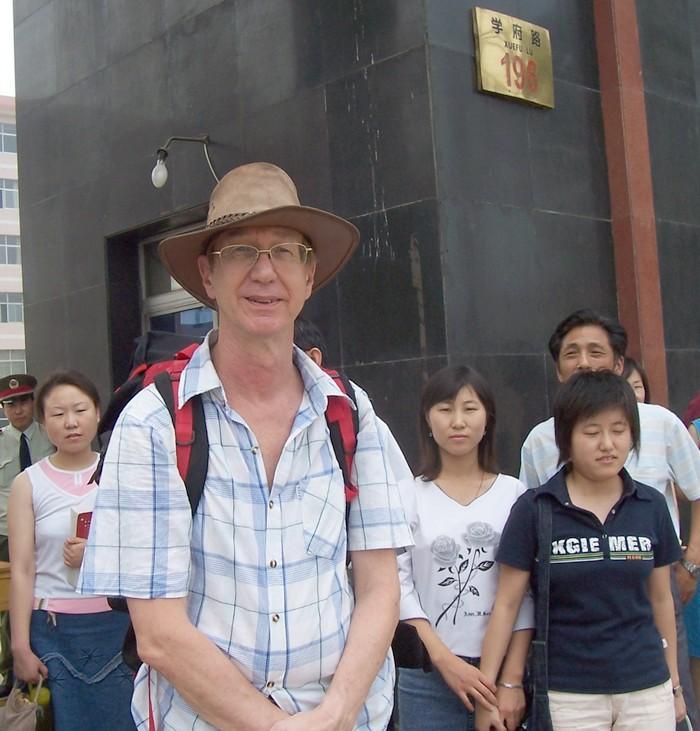| Civil rights | |
|---|---|
| Oct 16, 2007 17:18 | |
 | This post is not meant in any way to stir up controversy here, but rather to find out what's happening 'behind the scenes' in China. In the West we read about human rights abuses and civil rights/liberties abuses etc. that occur in China.. I'd like to hear how Chinese nationals here feel about this, if they are not inhibited to talk about it. The impetus for this thread came when I first tried to communicate with a friend living in China several months ago. Her e-mail address ended in '.cn', a typical Chinese address. I kept sending her e-mails but she never received any of them. I suggested she open a basic hotmail.com address, and sure enough the e-mails now went through. Do you get the sense that your government is trying to filter information that you can receive/send? I don't know if discussion of this kind is taboo in China. |
| Oct 17, 2007 10:12 | |
 | I have emailed many people at .cn email addresses and never had a problem. We all know that China has the great firewall, but it never interfered with my web surfing or communications. While "civil rights" abuses may exist, I have never seen any in my 3 trips to China. There is no question about working conditions being more difficult (more dangerous in some jobs) than in the US. ...but I am a US citizen and do not have the "inside scoop." Perhaps someone will respond, but I think that a response on this topic is unlikely. |
| Oct 18, 2007 06:43 | |
 | Canadaguy, Civil rights have to be viewed in relative terms. You first need to understand the history of a country to be able to apply a test of Human or Civil rights. You have been fortunate to have been born in a country that has been given by proxy a thousand years of development in this area starting from the Magna Carter. What we take for granted in our every day lives is for many a completely new concept. So please factor this into your thought on the present situation. Dodger |
| Oct 18, 2007 11:08 | |
 | Yes Canadaguy, it is hard to know what is going on behind the scenes, and I would like to know...because I always want to know whatever I can. I wouldn't put it as a question of civil rights as such, partly because information as such is not an issue, though it might be if it is withheld. It is also annoying to some people that they cannot have totally open discussion. Having said that, people have considerable freedom to talk about things provided they do not get too noisy about it. I don't think citizens are in fear of being rounded up for talking..but there are limits. Anyway, most are not interested, the governmnt has achieved growth at 11% a year and the people are busy trying to take advantage of it in what is probably the best era ever for ordinary working people. I don't think that this is really much different than say in the USA after 11 September it was just about impossible to say anything against the authorities as it was brandished by the media and powerbrokers as unpatriotic. Since I moved to near Hong Kong I find it interesting to see which HK news items are censored for mainland viewers.. Advertisments are hastily transmitted to cover the offending items. I won't list any as I am not wanting to stir controversy and I accept that as a domestic matter for the governmnt. However I do find it anoying that I cannot access Wikipedia (directly) because it contains a few references to sensitive issues that any educated person who wants to, can find out. The western countries have warts but we learn to live with them. I look forward to the day the leadership feels the country is strong enough to let everything be seen. There can't be many countries where the bulk of the poulation is so supportative of its national leaders and should be trusted. I don't think it will be many years away that this happens. |
| Oct 19, 2007 16:39 | |
 | It appears that government censorship is alive and well in China. I suppose I was a bit unrealistic in hoping for the nationals to speak out on this topic. I imagine there is a degree of risk in doing so, with not much reward to counter it. This from the CBC's website today: China hijacks search engines over Dalai Lama award, analysts say Last Updated: Thursday, October 18, 2007 | 5:20 PM ET CBC News China may be using the internet to get back at the U.S. for awarding the Dalai Lama with a Congressional Gold Medal, analysts say. Web surfers in China or those using Chinese internet service providers have reported they're being redirected from Google and Yahoo to the Chinese-owned Baidu search engine, according to the Search Engine Roundtable, a website that monitors internet search trends. (Photo) The Dalai Lama is greeted upon his arrival in Washington, where he was honoured by the White House. Internet analysts say China retaliated by hijacking search engine traffic. (Lawrence Jackson/Associated Press) Google's YouTube video-sharing portal and Yahoo's Flickr photo site were also blocked, according to other technology analysis sites, including Techcrunch. While China routinely censors internet content and blocks web pages, the country is engaging in a form of economic sanctions by hijacking U.S. search engine traffic, according to the Roundtable. "Some have accused Baidu of hijacking the traffic, but we think it's likely that China is upset with the U.S. over the award it granted to the Dalai Lama and is retaliating by hurting U.S.-based search engines," the Roundtable's Danny Sullivan wrote on its blog. The White House awarded the Dalai Lama its highest civilian honour on Wednesday, marking the first time a U.S. president has officially met with the exiled Tibetan Leader. Bush also called for an end to "religious repression" in China. Chinese government officials responded by saying the United States had "gravely undermined" relations between the two countries. Google confirmed the redirection in an email to the Roundtable website. "We've had numerous reports that Google.cn and other search engines have been blocked in China and traffic redirected to other sites," a spokesperson wrote. "While this is clearly unfortunate, we've seen this happen before and are confident that service will be restored to our users in the very near future." In 2002, Chinese public security authorities redirected Google searches to numerous smaller websites, including Baidu. |
| Oct 20, 2007 00:51 | |
 | >>>It appears that government censorship is alive and well in China. I suppose I was a bit unrealistic in hoping for the nationals to speak out on this topic. I imagine there is a degree of risk in doing so, with not much reward to counter it. I doubt the lack of comment has very little to do with censorship or fear of retribution. In my experience, the Chinese people are devoted to their country and supportive of their government. If you consider the difficult road the Chinese people have traveled, life is pretty good and there are opportunities for the common people that were unheard of in the past. While there are monumental difficulties still ahead, China has a bright future if we give the country time. It is terribly arrogant of westerners to judge China by western ideals. |
| Oct 23, 2007 12:22 | |
 | While I agree with Griz, I think the nation is now strong enough (in the broadest sense) that it doesnt need to operate this way. In any case, the people who really want to can find the full news onthe internet. These people like onions! |
Post a Reply to: Civil rights








 Copyright © 1998-2026 All rights reserved.
Copyright © 1998-2026 All rights reserved.